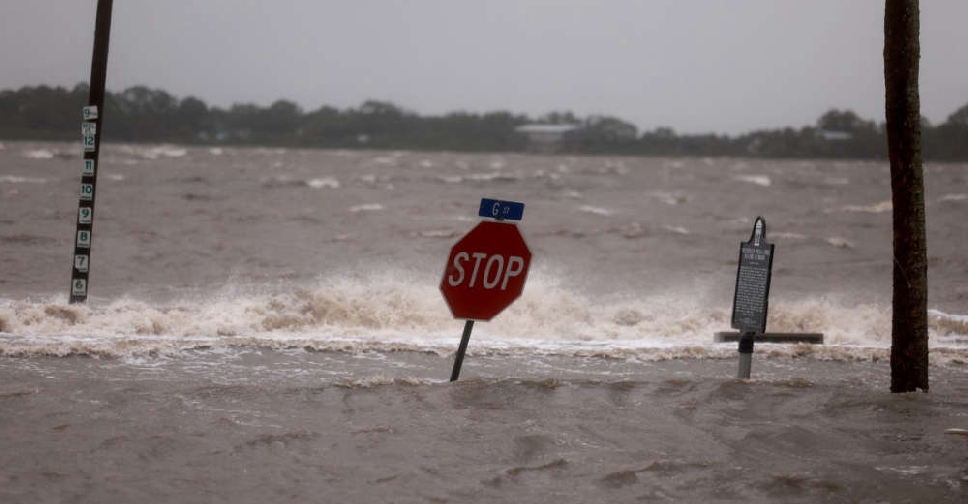
Storm Debby made landfall as a Category 1 hurricane in the Big Bend region of Florida on Monday and began a slow crawl toward the Atlantic Coast, on track to unleash a week of torrential rain and heavy flooding across the US Southeast.
The hurricane slammed ashore around 7:00 am near Steinhatchee, Florida, about 70 miles (115 km) southeast of Tallahassee, delivering winds of up to 80 mph (130 kph), the National Hurricane Centre said. It had weakened to a tropical storm by mid-morning.
Debby had already dumped up to a foot of rain in some parts of the state's southwest, Florida Division of Emergency Management Executive Director Kevin Guthrie said.
Hours after the storm's landfall in Steinhatchee, heavy rains were still falling on the beach town, and bayfront restaurants were flooded.
The hurricane centre predicted Debby would move offshore into the Atlantic by Tuesday night, but then re-strengthen and come back inland to unleash torrential rains on the coasts of Georgia and South Carolina later in the week.
The centre forecast "catastrophic flooding," with local areas from Florida to southeastern North Carolina receiving more than two feet of rain by Friday morning.
"This is going to be an event that is going to be probably here for the next five to seven days, maybe as long as 10 days, depending on how much rainfall we get," Guthrie said.
Roughly 280,000 customers were without power in Florida, according to Poweroutage.us.
Florida Governor Ron DeSantis said the state had been approved for federal disaster assistance on Sunday and that 17,000 workers were on hand to restore power.
Hundreds of flights were cancelled at Florida airports on Monday. Tallahassee International Airport said on X that it closed at midnight and would reopen at noon on Monday if it were safe to do so.
A slow-moving tropical storm as it passed over Cuba, Debby gained strength from exceptionally warm Gulf waters as it paralleled Florida's Gulf Coast.
Debby bears some of the hallmarks of Hurricane Harvey, which hit Corpus Christi, Texas, in August 2017. Downgraded to a tropical storm as it moved inland, Harvey lingered over Texas, dumping about 50 inches of rain on Houston and causing $125 billion in damage.
Climate scientists believe man-made global warming from burning fossil fuels has raised the temperature of the oceans, making storms bigger and more devastating.
The last hurricane to make a direct hit on the Big Bend region was Hurricane Idalia, which briefly gained Category 4 strength before making landfall as a Category 3 in August 2023.
The National Centres for Environmental Information estimated $3.5 billion in damages. DeSantis described the initial effects of Debby as "modest" compared with Idalia.
Forecasters expect numerous Atlantic hurricanes in the 2024 season, which began on June 1, including four to seven major ones. That would exceed the record-breaking 2005 season that spawned the devastating Katrina and Rita hurricanes.


 Sixty bodies retrieved from closed South African gold mine
Sixty bodies retrieved from closed South African gold mine
 Ukraine reports emergency power cuts amid 'massive' Russian air strike
Ukraine reports emergency power cuts amid 'massive' Russian air strike
 Hopes increase as Gaza ceasefire appears close
Hopes increase as Gaza ceasefire appears close
 South Korean investigators arrest impeached President Yoon
South Korean investigators arrest impeached President Yoon
 US Justice report finds Trump engaged in 'criminal effort' to overturn 2020 election
US Justice report finds Trump engaged in 'criminal effort' to overturn 2020 election







